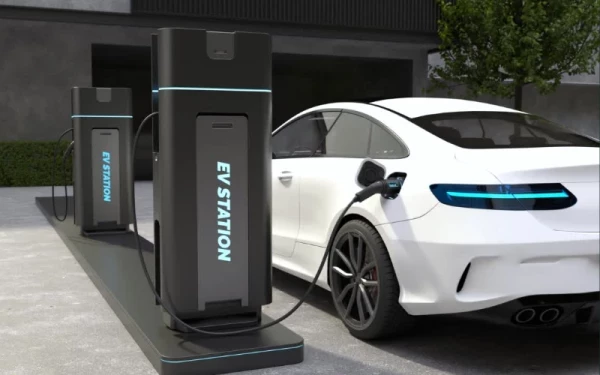Top 5 EV Platforms in 2025
Top 5 EV Platforms Transforming the Automotive Industry
Add bookmark
The transition to electric vehicles is no longer just a trend - it's a seismic shift that’s reshaping the automotive landscape. As the demand for EVs grows, automakers are increasingly turning to advanced platforms that deliver enhanced performance, sustainability, and scalability. With the rise of technological advancements and evolving consumer expectations, understanding the key EV platforms of 2025 is essential for automotive professionals seeking to stay ahead of the curve.
In this article, we explore the top 5 EV platforms that are set to dominate the automotive industry in 2025. These platforms not only reflect the latest in EV technology but also represent the industry's commitment to innovation and sustainability.
1. Volkswagen Group's MEB Platform
Volkswagen Group's Modular Electric Drive Matrix (MEB) platform has been a game-changer in the electric mobility sector since its introduction. In 2025, this platform will continue to dominate, serving as the backbone for a range of electric models from Volkswagen, Audi, Skoda, and SEAT. MEB is designed to be highly flexible, allowing for compact, mid-size, and large vehicles with rear- and all-wheel drive configurations.
One of the key strengths of the MEB platform is its ability to offer scalable battery sizes, optimising range and cost efficiency based on the specific needs of each model. As Matthias Rabe, Member of the Volkswagen Group’s Board of Management, stated "The MEB platform allows us to offer electric vehicles at scale, with improved efficiency and flexibility, aligning with both our sustainability goals and the demands of our customers." With over 1 million EVs expected to be produced using the MEB platform by 2025, Volkswagen is on track to solidify its position as a leader in electric mobility.
2. Tesla's Vehicle Platform
Tesla has long been at the forefront of the EV revolution, and its platform continues to evolve. By 2025, Tesla's platform will not only support the brand’s flagship models like the Model S, Model 3, Model X, and Model Y, but also new entrants into the market, such as the highly anticipated Cybertruck and a more affordable mass-market model.
Tesla’s platform is recognised for its cutting-edge battery technology, superior energy density, and its seamless integration of over-the-air updates. Tesla’s commitment to refining its battery technology is key — the company aims to cut battery costs and increase energy efficiency. According to Elon Musk, CEO of Tesla “Our goal is to make electric cars affordable for everyone while continuing to push the boundaries of battery performance and autonomy.” By 2025, Tesla is projected to expand its production capabilities, with annual vehicle production exceeding 2 million units globally, making its platform a pivotal player in the EV market.
3. General Motors' Ultium Platform
General Motors’ Ultium platform is one of the most ambitious platforms in the automotive industry, combining flexible architecture with cutting-edge battery technology. This platform powers a wide range of GM’s electric models, from luxury brands like Cadillac to mass-market offerings from Chevrolet and GMC.
The Ultium platform is notable for its modular design, which allows for flexibility across different vehicle types, including sedans, SUVs, trucks, and even commercial vehicles. One of its standout features is the Ultium battery, which provides increased energy density, faster charging times, and improved overall efficiency. GM’s Chief Engineer for Electric Vehicles, Doug Parks, highlights "It's not just the cost and performance of our innovative EV components that will give us a competitive advantage in a fast-changing industry, but how we integrate them with other advanced systems like Super Cruise, our Vehicle Intelligence Platform electrical architecture and other technologies pioneered in our traditional portfolio."
4. Rivian’s Skateboard Platform
Rivian, the electric truck and SUV startup, has made waves in the EV space with its groundbreaking skateboard platform. Designed specifically for all-electric adventure vehicles, this platform supports both the Rivian R1T pickup and the R1S SUV. By 2025, Rivian plans to expand its platform, bringing a new generation of electric vehicles to market.
The skateboard platform is engineered for durability, offering off-road capabilities and flexibility. It integrates the battery pack, motors, and other essential components into a low, flat design, which allows for more usable cabin space and improved aerodynamics. Rivian’s CEO, RJ Scaringe, notes “Our platform is designed to redefine the electric adventure vehicle. With the R1T and R1S, we’ve created vehicles that offer unmatched performance while still maintaining a focus on sustainability and adventure.” Rivian is aiming to produce 200,000 vehicles annually by 2025, a significant leap for the company’s rapidly growing presence in the EV market.
5. BMW's Neue Klasse Platform
BMW's Neue Klasse platform, set to debut in 2025, is a key step in the brand’s electric future. It will power a new generation of BMW electric vehicles, offering advanced battery technology for improved range and faster charging, with a focus on sustainability through the use of recycled materials. The platform supports exceptional driving dynamics, retaining BMW's signature performance, and integrates cutting-edge digital features like the iDrive 8 infotainment system and over-the-air updates. Oliver Zipse, CEO of BMW, stated " With the NEUE KLASSE, we will be turning the mobility of the future into reality. Driving dynamics, drivetrain, battery technology, operating concept, digitalisation: We have refined each of these aspects and, in the case of design, even skipped a generation”.
Conclusion: Shaping the Future of Electric Mobility
As the automotive industry shifts toward a more sustainable and electrified future, the platforms outlined above are set to lead the charge. From Volkswagen’s scalable MEB platform to Tesla’s continuous battery innovation, these platforms are redefining what it means to drive electric.
The competition in the EV space is fierce, but the platforms driving the change share a common goal: to create vehicles that are more efficient, affordable, and accessible to the global market. Automotive professionals must keep a close eye on these developments, as the success of these platforms will shape not only the future of transportation but also the broader landscape of automotive innovation.






















